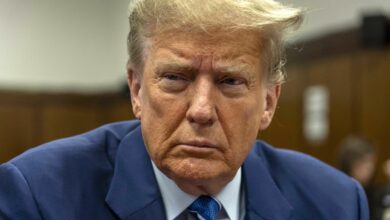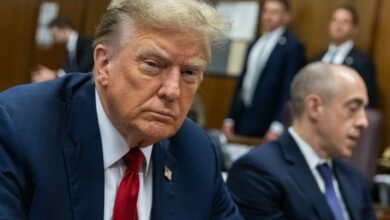Two leading human rights activists with experience of the Egyptian legal system have voiced their support for a court decision dissalowing further television coverage during the trial of former President Hosni Mubarak. The senior judge presiding over the case, which is to be merged with that of former Interior Minister Habib al-Adly, ruled recently that the live television coverage of the trial should be discontinued.
The decision is justified, said the activists, given that the court is poised to hear testimonies of various witnesses, and live television coverage might interfere with the witnesses and the testimonies they provide.
In particular, they said that the court is due to summon Field Marshal Hussein Tantawi, head of the Supreme Council of the Armed Forces, and General Omar Suleiman, former Egyptian vice president, to hear their testimonies with regards to protester deaths, and the two men might be called upon to disclose information of a sensitive nature relating to national security.
In the trial, Mubarak is accused of involvement in killing protesters, profiteering, illegally exploiting influence for personal gain and exporting gas to Israel at much reduced prices.
Gamal Eid, director of the Arab Network for Human Rights Information said that the decision is a good one. He said that it is unreasonable for trials to be broadcast to such an extent during testimonies, because doing so would have an impact on the testimonies themselves.
Nevertheless, Eid said the decision does not counteract the trial’s public nature, given the presence of martyrs’ families and their lawyers in the courtroom. He also said that the decision not to broadcast the trial will allow the lawyers to calmly observe the sessions, as is their right.
Khaled Ali, director of the Egyptian Center for Economic and Social Rights, said that the decision has logical reasons behind it and does not amount to a government conspiracy or backpedaling.
Ali added: “After reading about the case, it is clear that the decision was made in preparation for summoning Tantawi and Suleiman. These witnesses will be addressing delicate state matters regarding the period before, during, and after Mubarak’s resignation.
“It’s best that these things are not exposed to the public, despite Egyptians’ right to know them, in order to shield the country from any danger. Coming sessions will include things like testimonies, arguments between the defense and the witnesses, and other matters whose secrecy must be protected to avoid prejudicing the judicial procedures.”
He expressed his hope that the court would block live broadcasts during testimonies only, restoring coverage during other sessions of the case.
Translated from the Arabic Edition




